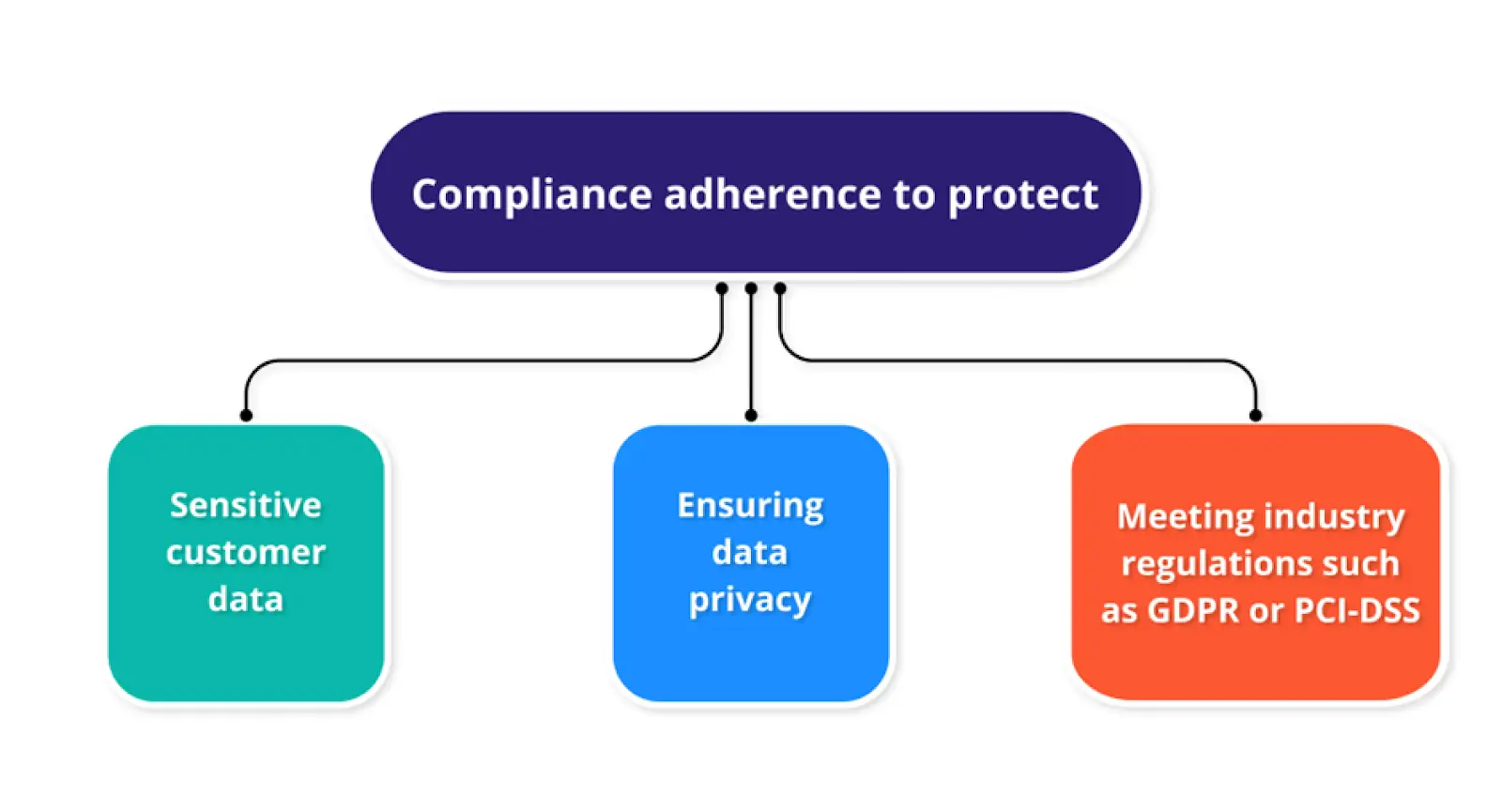The insurance sector is continuously evolving, adopting new technologies to enhance customer experience and streamline operations. One pivotal area of innovation is the incorporation of real-time monitoring and guidance systems in remote insurance call center jobs.
This blog explores how these technologies, particularly those offered by Convin, are transforming the landscape of remote call centers in the insurance industry.
Track Insurance Call Center jobs with Convin's
Real-Time Monitoring Technology!
The Role of Remote Call Centers in the Insurance Sector
Remote call centers are integral to the insurance industry, streamlining operations and enhancing customer relations. These centers utilize advanced technologies to manage various services from various locations, making them essential in the modern landscape of insurance services.
1. Expanded Accessibility
- Key Aspect: Remote call centers enable insurance companies to operate beyond traditional geographical limits. This accessibility is crucial for catering to a national or global customer base, offering consistent service regardless of the client's location.
- Impact on Jobs: Positions in insurance call center jobs are now accessible to a broader pool of talent, not restricted by proximity to physical office locations. This has opened up opportunities for remote insurance call center jobs, allowing companies to tap into diverse skill sets across regions.
2. 24/7 Customer Service
- Key Aspect: The insurance sector demands round-the-clock customer service due to the urgent nature of many client inquiries, such as claims or crisis management.
- Impact on Jobs: This necessity creates continuous shifts and opportunities for employment in remote insurance call center jobs, ensuring that assistance is always available for clients, thereby increasing customer trust and satisfaction.
3. Efficient Claims Processing
- Key Aspect: Remote call centers handle claims efficiently, using advanced software that can manage and process claims electronically. This efficiency is vital for speedy service delivery, especially in urgent scenarios.
- Impact on Jobs: There is a significant demand for skilled claims processors in remote settings who can navigate these technologies, contributing to faster resolution times which are crucial after accidents or disasters.
4. Sales and Marketing Support
- Key Aspect: Insurance products require detailed explanation and customization based on the client’s needs, which can be effectively handled through remote call centers.
- Impact on Jobs: Sales roles in remote insurance call center jobs involve advising potential customers on the best insurance products, handling objections, and closing sales, all of which are facilitated by comprehensive training and real-time guidance systems.
5. Enhanced Productivity and Employee Management
- Key Aspect: With the adoption of cloud-based platforms and communication tools, remote call centers can operate more smoothly and manage teams more effectively, regardless of their physical locations.
- Impact on Jobs: This leads to more structured and organized work environments for remote call center agents. It also necessitates roles focused on remote team management and technical support to ensure seamless operations.
6. Specialization in Services
- Key Aspect: Remote call centers allow for specialization in specific insurance sectors, such as life insurance call center jobs, where agents can focus exclusively on life insurance queries and claims.
- Impact on Jobs: Specialization enhances the quality of customer service and deepens job roles, requiring more detailed knowledge and specific skill sets that can lead to career advancement in focused areas of the insurance industry.
7. Cost-Effectiveness
- Key Aspect: Operating remotely can reduce the overhead costs associated with physical office spaces. This cost-effectiveness can be passed on to customers in the form of lower premiums and better service offerings.
- Impact on Jobs: This can lead to the expansion of teams and creation of new roles as savings from remote operations are reinvested into service enhancement and workforce expansion.
By understanding these points, we can appreciate how vital remote insurance call center jobs are to the insurance sector, facilitating not only enhanced customer interaction but also providing a dynamic and adaptable work environment for countless professionals.
How are Remote Insurance Call Center Jobs Enhanced by Real-Time Monitoring and Guidance?
1. Customer Service Representatives
Role Importance: In the insurance sector, customer service representatives are the front line of interaction, addressing client inquiries, claims updates, and policy modifications.
Impact of Convin's Real-Time Guidance:
- Instant Support: Agents receive immediate, contextual advice during calls, which helps ensure that they provide accurate and compliant responses.
- Regulatory Adherence: Real-time prompts remind representatives about compliance with industry standards, reducing the risk of legal issues.
Use Case Analysis: When faced with multifaceted customer queries, the system delivers real-time suggestions based on the conversation's context, aiding agents in providing comprehensive and compliant responses.
Real-World Application: For instance, if a policy renewal discussion reveals a customer's interest in additional coverage, the agent is promptly cued to discuss relevant insurance products, potentially increasing sales directly during the interaction.
2. Claims Processors
Role Importance: These specialists manage and adjudicate claims, a critical function especially in high-demand situations such as post-disaster scenarios.
Impact of Convin's Real-Time Analysis
- Error Reduction: By identifying real-time discrepancies, processors can instantly correct or request additional information.
- Efficiency: Streamlining the claims process leads to faster resolution, improving customer satisfaction and operational throughput.
Use Case Analysis: The system alerts processors about missing elements in a claim, ensuring comprehensive data collection.
Real-World Application: As processors discuss a claim, real-time suggestions guide them to secure all necessary details promptly, enhancing accuracy and speed in claims resolution.
3. Sales Agents
Role Importance: Sales agents drive revenue by converting leads into customers and expanding existing accounts through policy upgrades and renewals.
Impact of Convin's Solutions
- Tactical Adjustments: Real-time sentiment analysis and effectiveness feedback allow agents to tailor their strategies during calls.
- Conversion Rate Improvement: Guided scripting and proactive suggestions lead to better customer engagement and higher sales.
Use Case Analysis: Adaptive Sales Techniques: Dynamic battlecards and scripts adapt based on customer reactions, improving the relevance and impact of sales pitches.
Real-World Application: An agent receives live feedback to soften or intensify their sales pitch based on customer cues, increasing the likelihood of closing a deal.
4. Technical Support Specialists
Role Importance: These agents provide necessary technical assistance, helping customers navigate and utilize online services or insurance software.
Impact of Convin's Product
- Accuracy and Efficiency: Real-time guidance ensures that information conveyed is both correct and delivered efficiently.
- Customer Retention: Effective problem resolution enhances user satisfaction and loyalty.
Use Case Analysis: Step-by-Step Assistance: During customer interactions, live captions and guided scripts help specialists provide precise technical support.
Real-World Application: Real-time prompts enable specialists to manage stressful calls better, ensuring a smoother customer experience and reducing average handle times.
5. Quality Assurance Analysts
Role Importance: QA analysts guarantee that all customer interactions align with both company standards and regulatory requirements.
Impact of Convin's Monitoring

- Immediate Feedback: Live monitoring and automated scoring systems provide instant performance assessments, crucial for maintaining high service quality.
- Continuous Improvement: Ongoing analytics drive consistent improvements in agent interactions.
Use Case Analysis: Real-Time Coaching: Analysts can intervene during or immediately after calls to provide targeted coaching based on the analytics provided.
Real-World Application: QA personnel monitor interactions in real-time, using automated feedback to promptly correct any deviations, thus ensuring compliance and service excellence.
By integrating Convin's real-time monitoring and guidance systems, remote insurance call centers can significantly enhance their efficiency and effectiveness across various roles, directly impacting overall business performance and customer satisfaction in the dynamic field of insurance.
This blog is just the start.
Unlock the power of Convin’s AI with a live demo.

4 Benefits of Using Real-Time Monitoring and Guidance in Insurance Call Centers
Adopting real-time monitoring and guidance systems like Convin in insurance call centers improves operational aspects and significantly enhances agent and customer experiences.
1. Enhanced Compliance

- Immediate Compliance Prompts: Real-time systems are crucial in regulated environments like insurance. Convin’s real-time monitoring ensures that all communications adhere to legal and company standards by providing instant prompts to agents. This reduces the risk of regulatory violations resulting from inaccurate information or improper procedures.
- Automated Audit Trails: Every interaction is automatically documented with high accuracy, ensuring that insurance call centers can provide evidence for compliance during audits. This is particularly important in sectors such as life insurance, where regulatory compliance is stringent.
2. Improved Customer Satisfaction

- Personalization at Scale: Real-time guidance helps agents personalize interactions based on real-time data analysis. For instance, if a customer is identified as high-risk or high-value, the system can prompt the agent with tailored talking points to enhance engagement and satisfaction.

- Faster Resolution Times: Real-time interventions enable agents to handle queries more efficiently, significantly reducing the average handling time. This quick resolution directly contributes to higher customer satisfaction and loyalty, which are critical metrics for success in insurance call center jobs.
3. Increased Operational Efficiency
- Streamlined Operations: With features like guided scripts and proactive alerts, agents can manage calls more efficiently. This reduces the time spent on each call, allowing for more daily customer interactions, which is vital for high-volume remote insurance call center jobs.
- Reduced Training Time: Convin’s real-time feedback and coaching capabilities allow new agents to ramp up faster, decreasing the time and resources spent on extensive training programs. This is especially beneficial for remote setups where in-person training can be challenging.
4. Improved Agent Performance
- Adaptive Learning and Feedback: Agents receive continuous feedback on their performance, including areas of improvement and affirmation of correct behaviors. This ongoing learning process helps agents refine their skills on-the-fly, which is crucial in dynamic environments such as life insurance call centers.
- Empowered Agents: Having access to support in real-time can make agents feel more confident and empowered to handle complex scenarios, which can improve their job satisfaction and performance. For remote insurance call center jobs, this means better handling of diverse customer cases without the need for frequent supervisor intervention.
Real-time monitoring and guidance systems transform how insurance call centers operate, making them more efficient, compliant, and customer-centric. These technologies are becoming indispensable in the insurance sector, particularly in remote and life insurance call center jobs, where the demand for high-quality customer interaction constantly increases.
Empowering Insurance Call Centers with Real-Time Technology
Incorporating real-time monitoring and guidance tools in remote insurance call center jobs is not just about technology adoption but transforming how the insurance sector interacts with its clientele. As we move forward, integrating these technologies will become a standard, driving better outcomes for customers and companies. With solutions like Convin, remote call centers can meet and exceed the evolving expectations of the digital age.
Experience the impact of Convin Real-Time solutions; Contact us to improve the performance of your insurance call center today!
FAQs
1. What kind of software do call center agents use?
Call center agents typically use Customer Relationship Management (CRM) software, Automatic Call Distributors (ACD), and Interactive Voice Response (IVR) systems to manage and optimize customer interactions.
2. What is the best insurance software company?
Guidewire is often regarded as one of the best insurance software companies, providing a comprehensive suite of applications designed for property and casualty insurers to streamline operations and improve customer engagement.
3. What technology do call center agents use?
Call center agents use technologies like VoIP (Voice over Internet Protocol), CRM platforms, and workforce optimization tools to manage calls efficiently and enhance productivity.
4. What is insurance CRM software?
Insurance CRM software helps agencies manage client relationships, policies, and claims, with Salesforce Financial Services Cloud being a popular choice for its extensive customization options and integrations.








.avif)